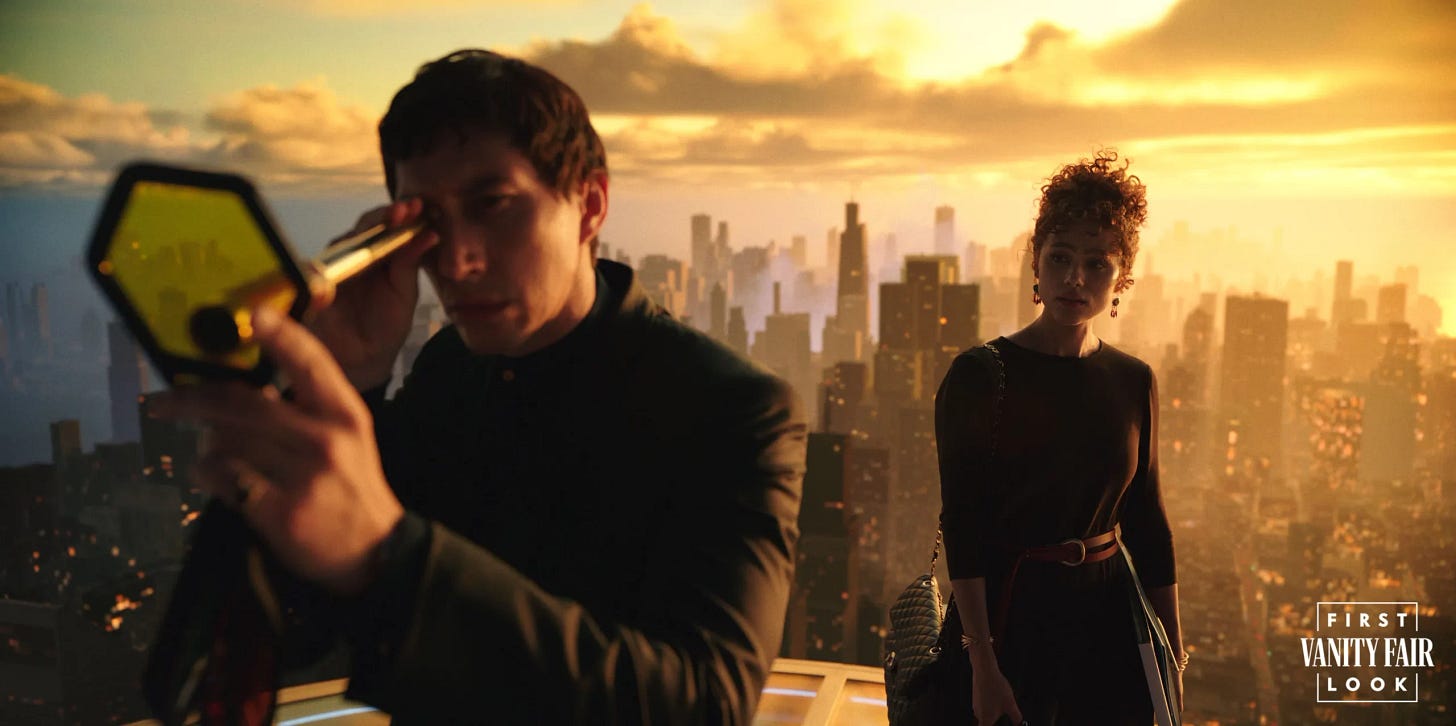White Lotus, Mike White, and the Pitfalls of Being Called a "Genius"
Mike White lost a bit of his Midas touch with this languorous, scattershot season of White Lotus. What happened?

Let’s be clear: Mike White has written some genius things. Season 2 of White Lotus was absurdly brilliant, season 1 was also extremely good. The School of Rock, The Good Girl, and Year of the Dog are fantastic films in his filmography. He’s an incredible writer, that’s not and never will be in question.
But, season 3 of White Lotus was a major letdown for a lot of fans. Sure, it still had some buzz-worthy moments and hilarious line readings (thank you Parker Posey!), but overall it felt…lost. Too many plot lines ended up not mattering, plot beats were repeated across episodes, tensions were drawn out so long they lost all intrigue, and many characters felt drawn with a much broader brush than the previous seasons.
So what happened? I think the answer lies in the extreme defensiveness Mike White has shown in the face of these criticisms. There was a particularly illuminating quote from his recent interview with Howard Stern, where he addressed the criticism this season received:
“There was complaining about how there’s no plot. That part I find weird. Part of me is just like, ‘Bro, this is the vibe. I’m world-building. If you don’t want to go to bed with me then get out of my bed. I’m edging you! Enjoy the edging. If you don’t want to be edged, then get out of my bed.’ Do you know what I mean? Don’t be a bossy bottom. Get the fuck out of my bed. Don’t come home with me. Don’t get naked in my bed. Get the fuck out of my bed. Obviously something is going to happen.”
Who Gets To Decide If The Vibe Is Good, Though, Bro?
Mike White may have executed his Thailand-set vision precisely as he wanted to, but unfortunately in Hollywood, the creator is not the only person who gets to decide if what was created was good. Audiences, critics, and executives all get to weigh in. And, for a lot of them, it was a lackluster season compared to the past two!
Are the detractors wrong? Is Mike White wrong? There’s no answer, but I think what you can’t do is dismiss sizable criticism outright. Yes, criticism can many times be unfair, unwarranted, or from an unreliable source, or given in bad faith. But when so much criticism matches, from a large section of your audience, I think you’re only damaging your future projects by scoffing at it and telling people to fuck off and trying to play the “I’m just a smol bean writer uwu” card.
Yes, Mike White pins this tsunami of criticism on him no longer being an “underdog writer,” and I think he’s right to extent, just not in the way he thinks.
What The White Lotus did was firmly elevate Mike White to the hallowed realm of Genius. Thanks largely to the glory that was Tanya McQuoid, Hollywood, audiences, and HBO executives bestowed upon Mike that glowing halo, which is always double-edged. On one hand, it gives a creator incredible freedom to execute their visions. On the other, it can crank up expectations from the audience to untenable levels AND insulates the creator from receiving the type of feedback/pushback they probably had when they were starting out and struggling.
I was having lunch with a friend recently and we talked about Mike White. She was telling me about a friend of hers who worked with him on a different show and wrote a script he really liked, but he said “This isn’t what I was envisioning,” so he rewrote it himself. This was seen as a mark of “genius,” that he could have such a singular vision and be able to write it all himself. And yes, that takes immense skill!
However. “Genius” is a slippery label, and the pressure of it and the unrealistic nature of it can lead artists to create underwhelming art on overly insulated conditions. The more frequently the label is applied, the less input they are likely to receive from outside sources. It’s why, time and again, we see people hailed as geniuses struggle to follow up their successes. It’s why Michael Cimino famously shat the bed after being Hollywood’s darling director for a hot second in the 1970s. He won Best Picture with The Deer Hunter, got a gargantuan budget for his follow-up project, and then shat out the endless, pointless, mega-bomb Heaven’s Gate, one of the biggest flops in history.
It’s also how Francis Ford Coppola, the director of some of the greatest films of all time, The Godfather, can also write and direct something as staggeringly disastrous as Megaopolis.
Conversely, it’s also perhaps why someone like Harper Lee created a single piece of genius with To Kill a Mockingbird, but never created another.
What I’m getting at is this: Ultimately, I believe genius is something you can access under the right conditions. It’s not a permanent stasis.
Genius is A Vibe and Sometimes The Vibrations Stop
We are all capable of, in fleeting moments, coming up with a genius idea, or creating something that someone else will label “genius.” I have a few jokes and sketches I wrote back in my Chicago comedy days that I’m still proud of.
Some people, like Mike White or Toni Morrison or Leonard Bernstein or Lady Gaga, are (or were) capable of accessing genius much, much more regularly. However, again, it’s not a permanent stasis.
Tina Fey wrote about her Rule of 10 in her book Bossypants, which states that even if you are the top performer in your field, only about one out of every 10 ideas you come up with are going to be any good. Even the greatest geniuses had bad ideas.
Thomas Edison once had a horrible idea for a giant mold of a house that you’d pour concrete into and voila, near-instant concrete house. Like, what the fuck Tom? Really? Get back to lightbulbs you crazy queen.
The other element of genius is who decides what is genius? If one person finds your creation genius, is it genius? Two people? Twenty people? Is there a tipping point where genius becomes commonly accepted? There’s no answer to that, but I do know if a person has enough people in their life telling them they’re a genius, they’re likely going to assume the mantle of one in some way. And, even if they reject that label, the people who consider them a genius will certainly change their behavior and, as previously mentioned, be more willing to wholesale accept any idea the “genius” comes up with, even if it’s a giant concrete mold for a house.
Mike White had some fantastic ideas for White Lotus season 3. Yet, sometimes his instincts were clearly off, like when he nixed the all-important ooh-loo-loos from the opening credits song and literally everyone was like “why does this theme song suck so much more than season 2’s banger hit?”
I have no idea what the process for writing Season 3 was like, but from everything I’ve read and heard it sounds like Mike wrote it all himself. Again, not inherently a problem! But, was he getting workable feedback from a variety of sources, or was he sticking a little too closely to his vision like he did with the theme song? Was anyone saying “you haven’t moved the three ladies’ plot forward in three episodes, maybe spice it up a bit in episode 2?”
Either way, the season was a success, ratings-wise, so we are surely in store for several more White Lotus seasons. I simply hope he keeps the audience in mind a wee bit more, give us our ooh-loo-loos, and allows outside perspectives in during the creative process, even if he doesn’t ultimately use all of them. Ideas, even from a “genius,” should still be pressure tested.
Of course, all this is easy for me to say from my dumb-heaux blog and as someone with probably 1/50th of the talent Mike White has. I just hope next season is less of a thudding concrete house and more of a brilliant lightbulb moment.
Thank you for reading Hollywood on the Loos! Please subscribe, share, and if you liked what you read, drop a few coins in the Tip Jar!




